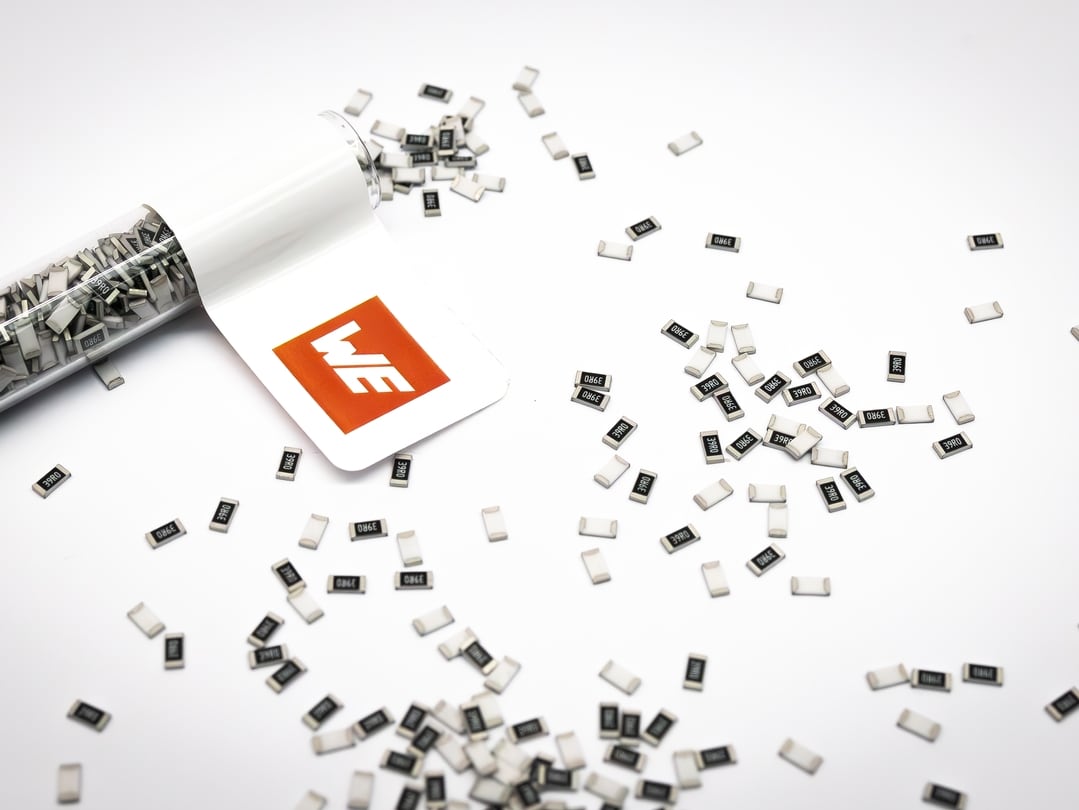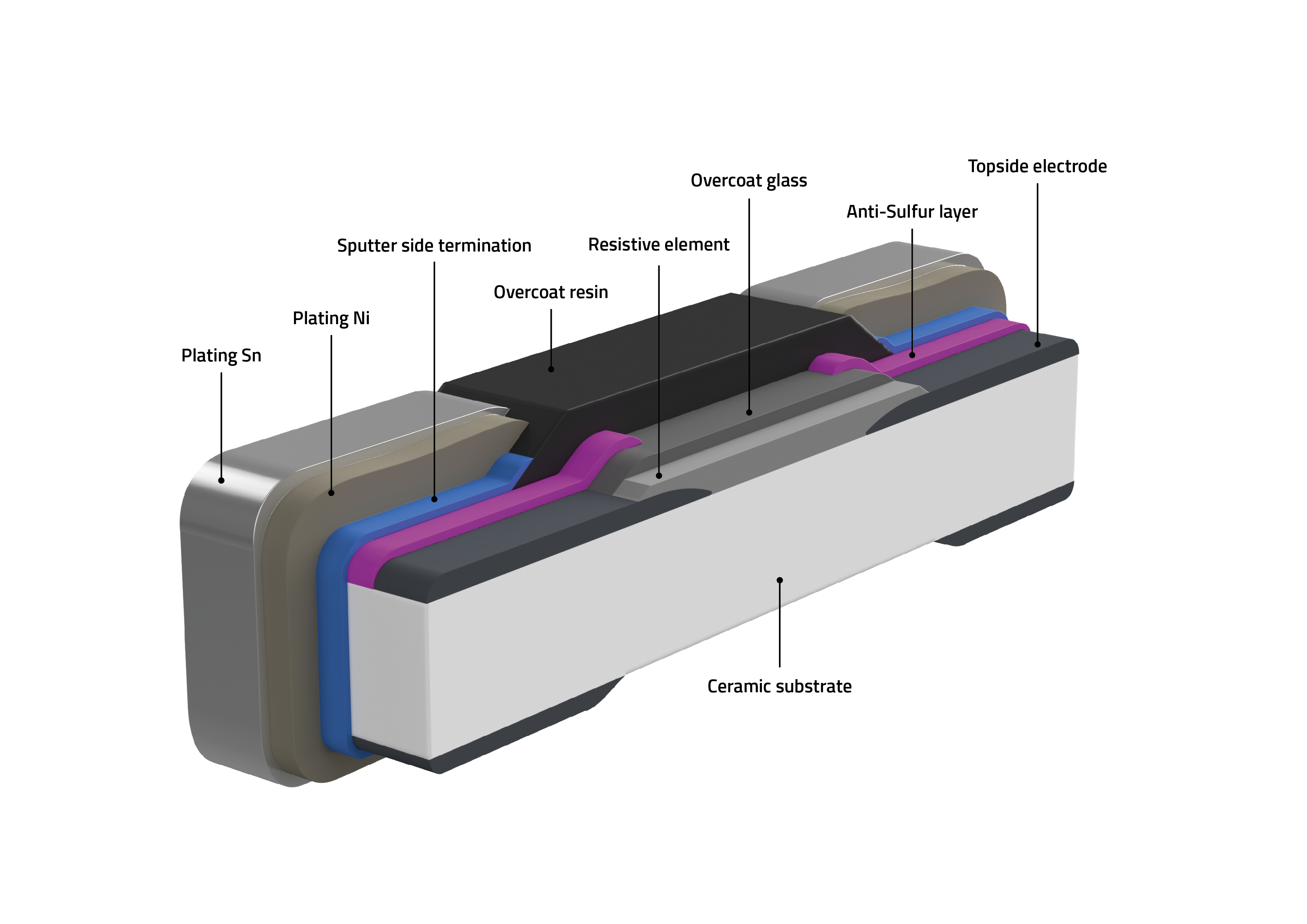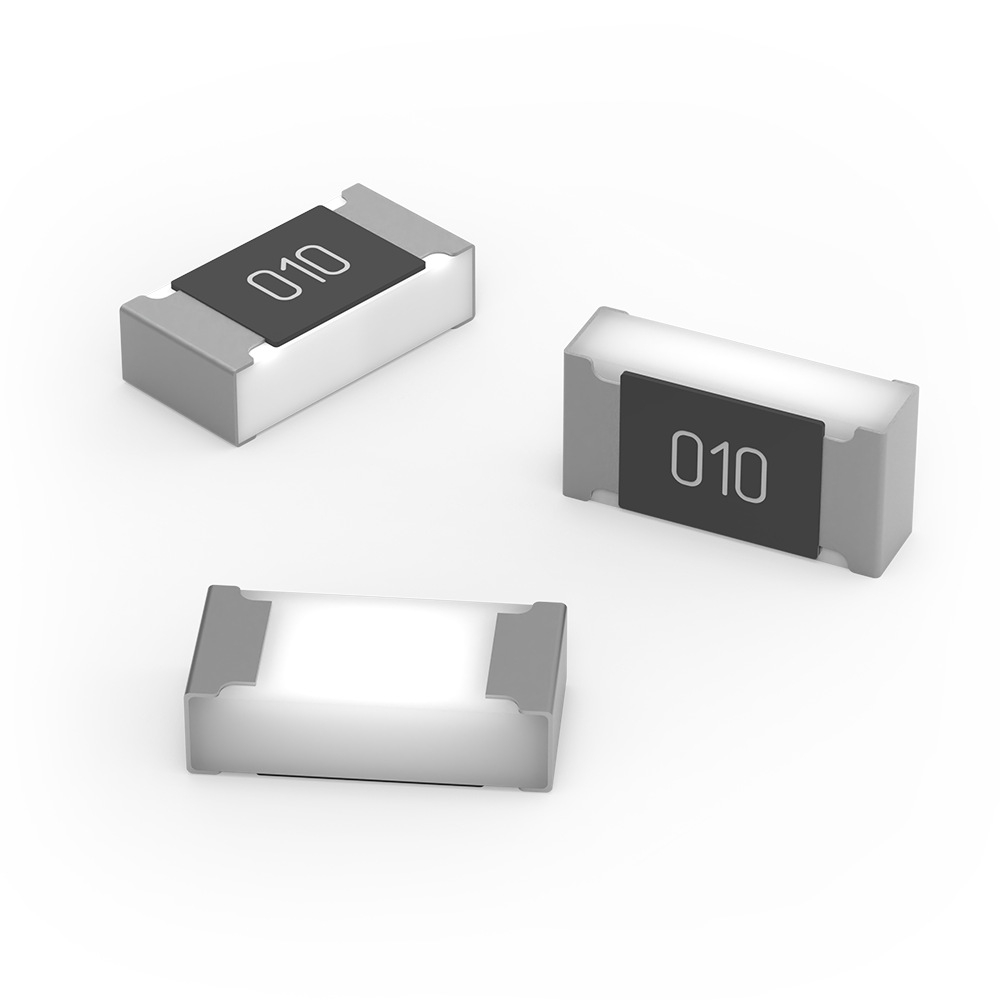
For particularly harsh environments, we offer special resistors that work perfectly even in sulfurous air over long periods of time. An additional protective layer for the inner electrodes makes this possible.
A thick-film resistor consists of several layers, which are usually built up on a base, the so-called substrate. A ceramic substrate is typically used, as this material offers good thermal stability and insulation. A paste containing resistance materials is applied to this substrate using screen printing. The unit is then heated in an oven to fuse the materials and create a homogeneous layer. This layer maintains a precisely defined electrical resistance, even over long periods of time.
Anyone who has ever tried to eat a hard-boiled egg with a silver spoon has experienced it: Eggs contain sulfur compounds that immediately react with the silver. The result is silver sulfide, which tarnishes the spoon and also tastes unpleasant.
Something similar happens when standard thick film resistors are exposed to sulfurous air. The internal silver electrodes react with the sulfur to form silver sulfide, which has a considerably lower electrical conductivity than metallic silver. As a result, the resistance value of the entire component changes, which can lead to malfunctions and failures.
With the sulfur-resistant resistors WRIS-RSKS from Würth Elektronik, an additional protective layer made of a nickel-chromium alloy is applied to the silver-based electrode to protect it. A test of the components in accordance with the ASTM B-809 standard confirms their reliable function.
Sulfur compounds or sulfur gases occur in many industries, such as in the chemical industry, refineries, oil and gas processing, environmental monitoring, mining, agriculture, or the transport sector. In all these areas, our sulfur-resistant thick-film resistors ensure that electronics function reliably over long periods of time.
The product range of sulfur-resistant resistors from Würth Elektronik comprises more than 500 component types.
The resistance values range from 1 Ω to 10 MΩ, with tolerances of ± 1 or ± 5 percent. Typical designs are 0402, 0603, 0805, 1206, and 1210. The sulfur-resistant resistors are designed for power ratings from 0.1 to 0.5 W and are suitable for a temperature range from -55 °C to +155 °C.
Würth Elektronik will offer three design kits for the WRIS-RSKS product series of sulfur-resistant resistors, divided into the 0402, 0603 and 0805/1206 designs.


